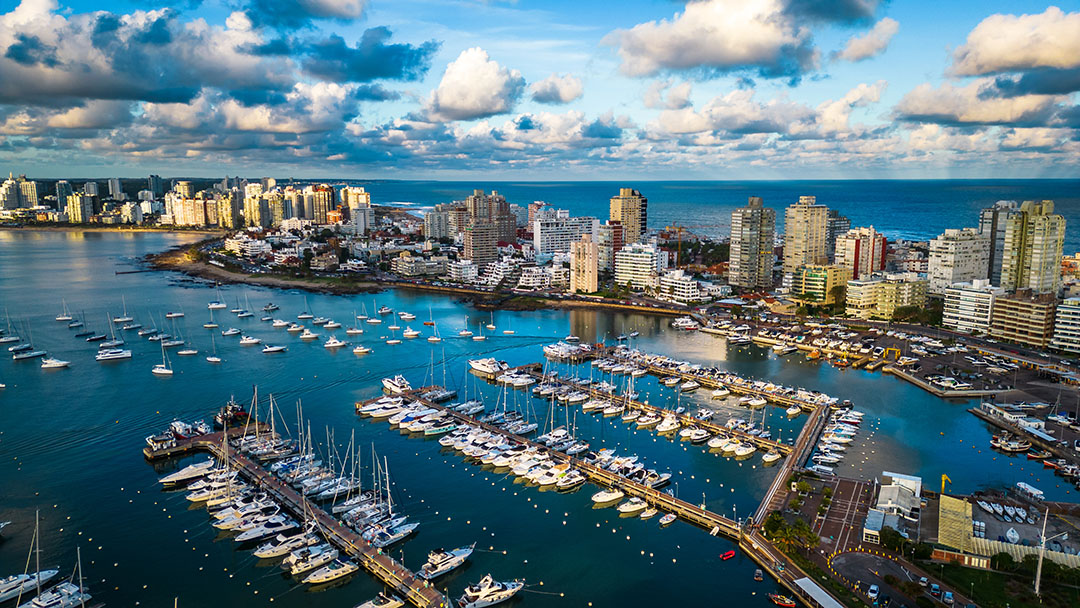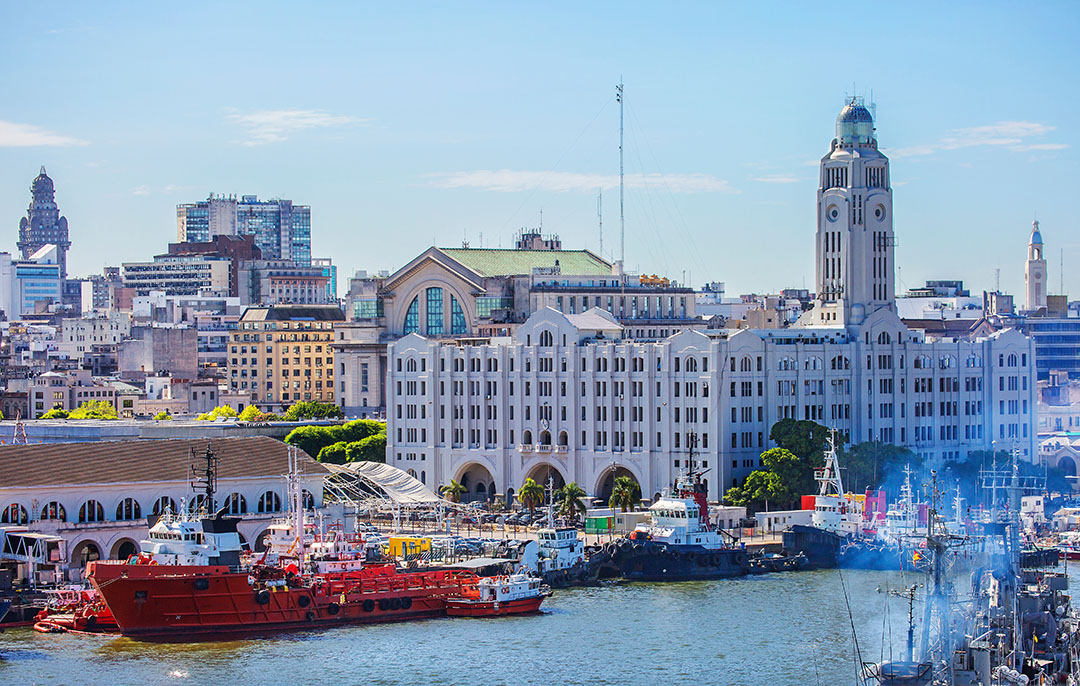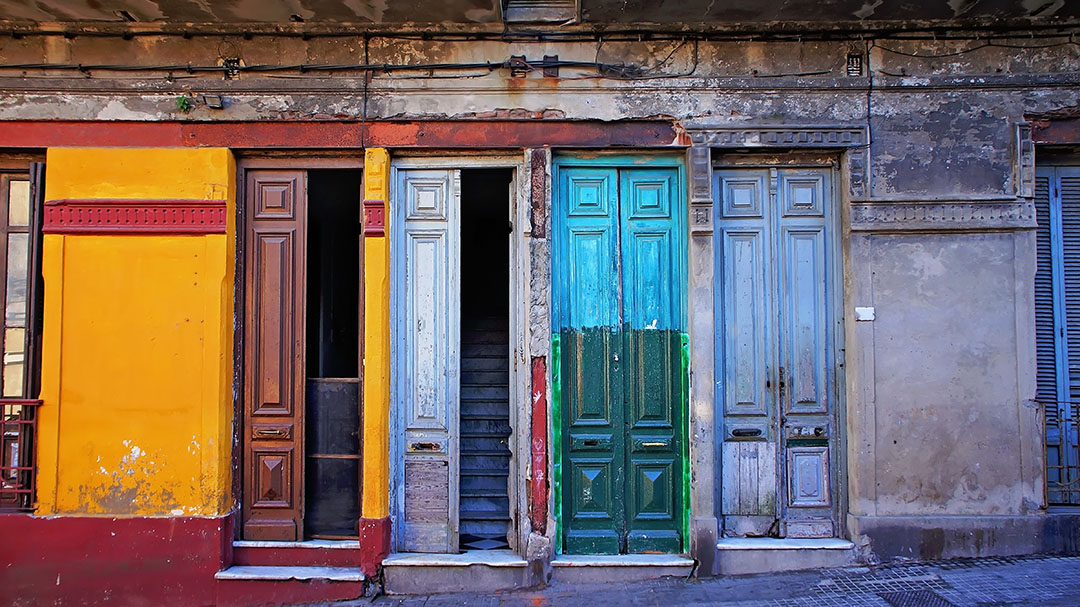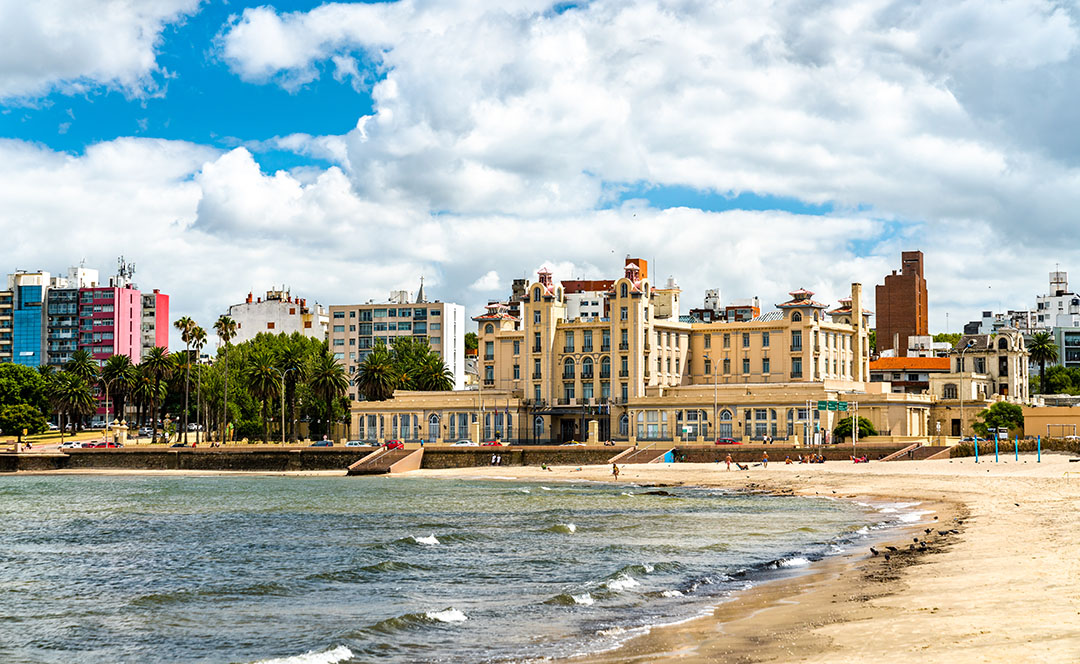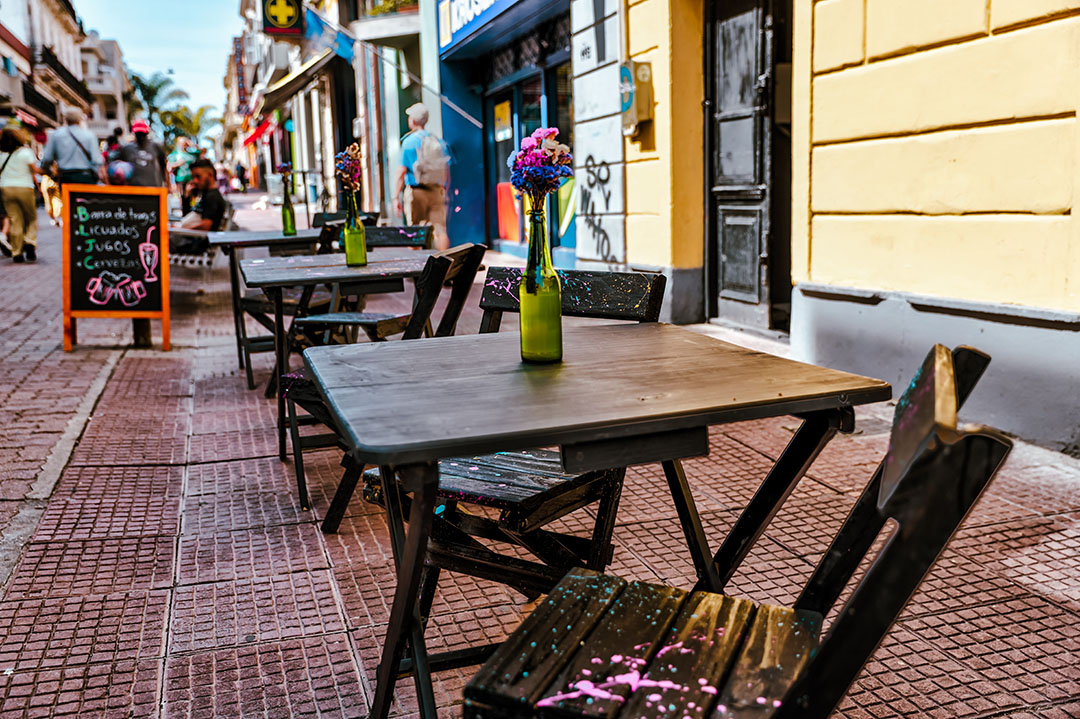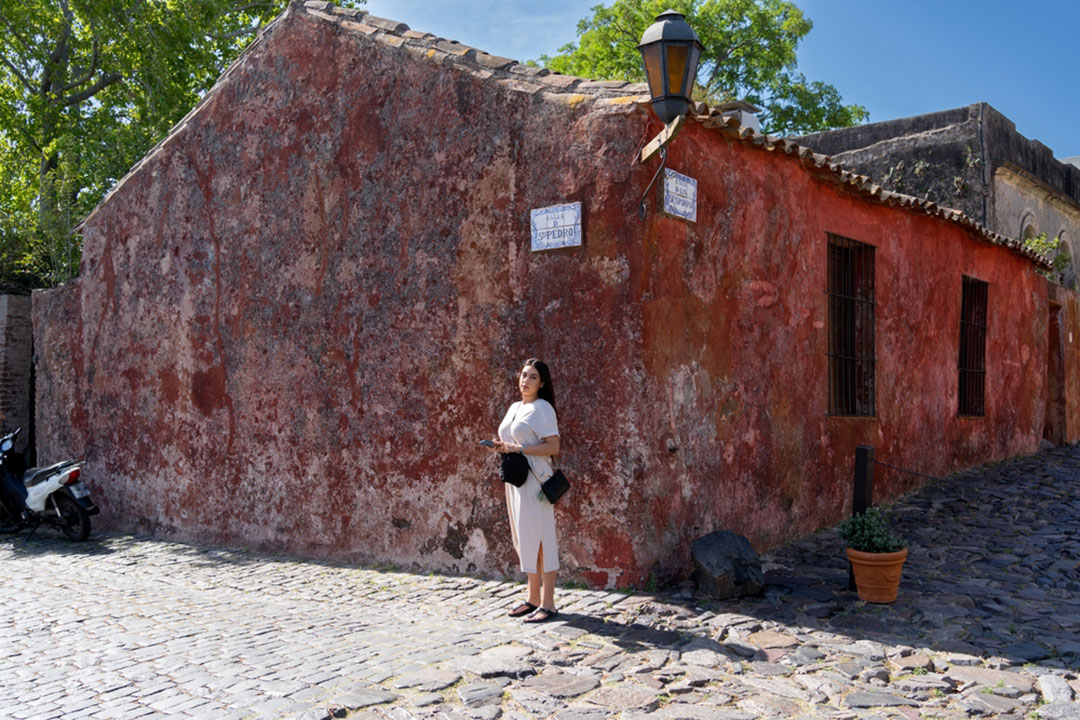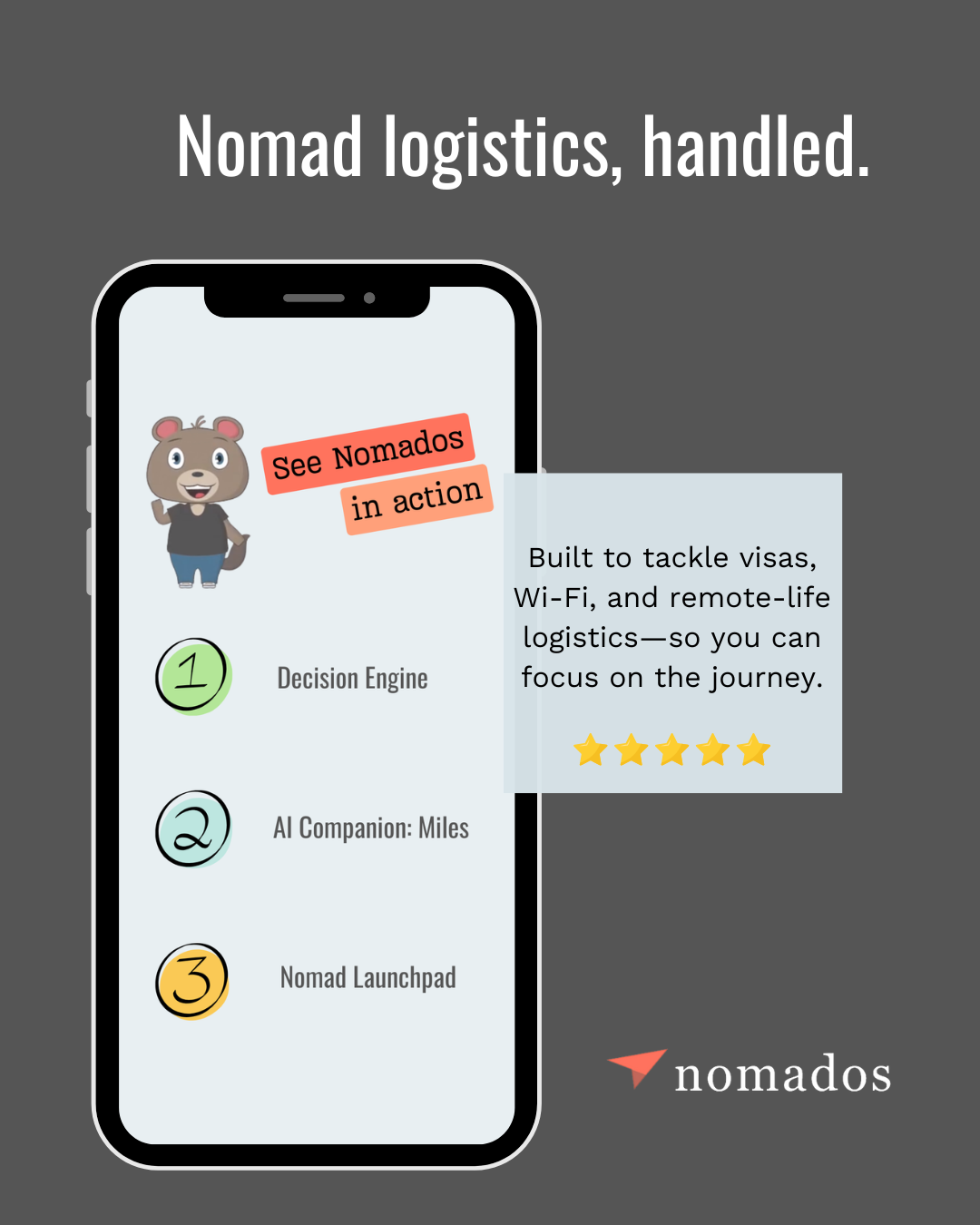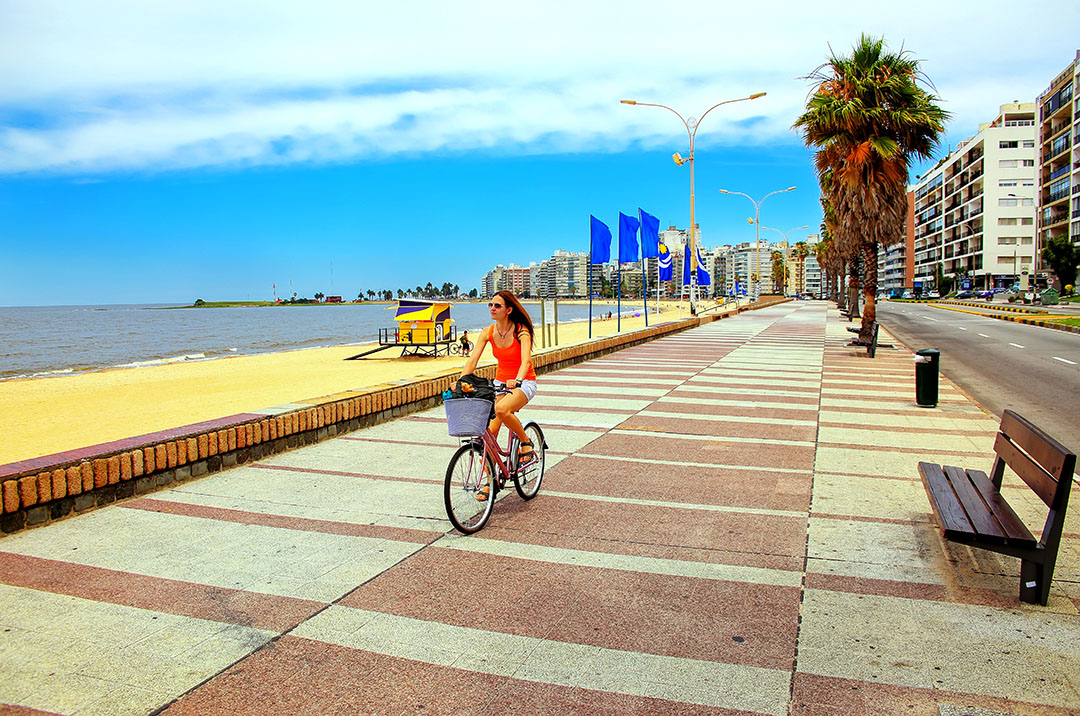Can digital nomads live in Uruguay in 2025?
Yes—and it’s easier than you might think. Uruguay offers a simple, accessible digital nomad visa that allows remote workers to live legally in the country for up to a year, with the option to renew.
Montevideo, Punta del Este, and other cities offer strong infrastructure, solid internet, and a relaxed pace of life that appeals to location-independent professionals. In this guide, we’ll break down everything you need to know: how the visa works, where to base yourself, and what daily life actually costs.
Why Consider Uruguay?
Uruguay quietly offers one of the most peaceful and livable paths into remote work in South America. With solid infrastructure, good healthcare, and the introduction of a digital nomad visa, it’s becoming a realistic option for professionals seeking a well-balanced life. Montevideo even ranks highest in makeup in Latin America for quality of life.
Digital Nomad Visa Overview
Launched in May 2023, Uruguay’s Provisional Identity Card for Remote Workers allows digital nomads to stay for 6 months, renewable once—totaling 12 months. There’s no official income requirement, and foreign-earned money is generally not taxable locally.
Cost of Living in Uruguay
| Category | Montevideo (Nomad Estimate) |
| Rent (1BR) | $500–700 (center); $350–500 (outside) |
| Living Total (est) | $1,000–1,750 for rent, groceries, utilities |
| Lifestyle Actual | ~$1,200–1,300/month per expat accounts |
| Nomad Spending | $2,070/month (includes furnished stays) |
Best Cities for Remote Work
Montevideo
Uruguay’s capital is the country’s main tech and business hub, and the most obvious choice for digital nomads seeking stability and infrastructure. With a population of around 1.3 million, Montevideo offers a European feel with a Latin American pace—tree-lined boulevards, reliable internet, and an emerging coworking scene (check out Sinergia and Impact Hub). Cost of living is moderate compared to other capital cities in the region. You’ll find walkable neighborhoods like Pocitos and Parque Rodó that balance beach access with urban energy. There’s plenty of culture, from street murals to tango shows to the famous Mercado del Puerto.
Punta del Este
If you’re craving coastal luxury or seasonal glamour, Punta del Este delivers. Known as the “Monaco of the South,” it’s a summer hotspot for South Americans but increasingly attractive to remote workers who want ocean views, upscale dining, and a more relaxed vibe. Fast internet and boutique coworking spaces (like Campus and Neverland CoWork) are available, especially in high season. Off-season, it’s quieter but still livable, with significantly lower rent prices. It’s a good pick if you prefer beach town rhythms with a touch of affluence.
Colonia del Sacramento
For those seeking a slower pace of life with postcard-perfect surroundings, Colonia is ideal. This UNESCO-listed colonial town sits on the Río de la Plata and offers a quieter, more reflective experience for nomads who want to focus or recharge. It’s small—only about 25,000 residents—but growing in popularity thanks to ferry access to Buenos Aires (about 1 hour away). While coworking spaces are limited, cafes and libraries with decent WiFi can suffice for minimal work setups. Think of it as a weekend that never ends—with cobblestone streets, riverfront sunsets, and tranquility built in.
Internet and Coworking
Uruguay has quietly become one of the most digitally connected countries in South America. Thanks to early public investment in fiber-optic infrastructure and a strong push for nationwide connectivity, the country offers surprisingly solid internet for a place its size.
Internet Speeds and Access
-
Average speeds in Montevideo and Punta del Este range from 70–120 Mbps, with fiber connections widely available in urban areas.
-
Antel, Uruguay’s state-owned telecom provider, maintains strong coverage, with fiber reaching more than 80% of homes in major cities.
-
Mobile networks offer solid 4G coverage across most populated regions, with growing access to 5G in Montevideo and coastal areas.
-
SIM cards are easy to obtain with a passport and can be topped up locally or online.
Even in small towns, speeds of 30–50 Mbps are common, making it feasible to live and work outside the capital.
Coworking Spaces
Montevideo, the capital, is the epicenter of Uruguay’s coworking scene, with new hubs emerging in beach towns like Punta del Este—particularly in high season.
Notable coworking spaces:
-
Sinergia Cowork (Montevideo) – The country’s most established coworking network, with multiple branches, including Sinergia Design and Sinergia Palermo.
-
Kaizen Space (Montevideo) – Sleek, modern, and startup-friendly, with a focus on entrepreneurs and creatives.
-
Punta Tech Cowork (Punta del Este) – Seasonal but well-equipped, this space hosts events and draws a crowd during Uruguay’s busy southern summer (December–February).
-
La Mañana Cowork (Colonia del Sacramento) – A cozy, community-oriented space in one of Uruguay’s most scenic towns.
Many spaces offer daily, weekly, and monthly rates, with amenities like meeting rooms, high-speed WiFi, free coffee, and event programming. Some even include outdoor terraces or garden workspaces—a nod to Uruguay’s laid-back style.
Work-Friendly Cafés
Montevideo’s café culture is strong, with reliable WiFi and flexible seating in neighborhoods like Pocitos, Ciudad Vieja, and Parque Rodó. Don’t be surprised if your “office” is a waterfront café with a view of La Rambla and a glass of Tannat nearby.
Visa Requirements and Process
The Uruguay digital nomad visa is simple:
- Duration: 6 months, renewable once
- Requirements: Passport, work status affidavit, clean criminal record (for renewal)
- Taxes: No tax on foreign income
Lifestyle and Culture
Uruguay has a calm confidence that sets it apart from its louder neighbors. It’s not trying to be trendy, and that’s part of the appeal. For digital nomads, this means a slower pace of life, high personal safety, and a culture that values simplicity, time outdoors, and civil liberties.
Work-Life Balance That Leans Into “Life”
Uruguayans take their time. Long lunches aren’t rare, and people genuinely log off after work. Sundays are for family asado (barbecue), and weekdays often end with a walk along the rambla, the coastal promenade that wraps around Montevideo. It’s easy to settle into a rhythm that feels restorative—especially for remote workers burned out by hustle culture.
Mate, Music, and Minimal Drama
The national drink, mate, isn’t just a beverage—it’s a ritual. You’ll see locals walking with thermoses under their arms and sharing from the same cup, a social act that opens conversations with strangers. Uruguay also has a rich music culture, from candombe drum parades to rock nacional and tango. Nightlife is relaxed but present—think live music at small bars more than booming clubs.
Progressive and Quietly Proud
This is one of Latin America’s most progressive countries. Uruguay legalized same-sex marriage, marijuana, and abortion ahead of much of the region. The politics are stable, healthcare is accessible, and the vibe is generally live-and-let-live. Expats and nomads often report feeling welcomed—not pandered to, but accepted.
Language and Local Connection
Spanish is the official language, but English is spoken in parts of Montevideo and Punta del Este, especially in coworking or tourist settings. That said, learning a bit of Spanish goes a long way. Uruguayans are friendly but reserved at first—don’t expect the same immediate warmth as in Argentina or Colombia, but meaningful connections tend to run deeper when they form.
Frequently Asked Questions about Uruguay for Digital Nomads
Q: Is there an income requirement?
A: No official threshold. An affidavit suffices
Q: Is my remote income taxed?
A: No, if earned outside Uruguay.
Q: Can I stay longer?
A: Yes – 6 months + one renewal, for up to 1 year.
Q: How much to live here?
A: Expect $1,200–2,000/month depending on lifestyle.
Q: Is the internet good?
A: Yes – ~160 Mbps average speeds regionally.
Q: Best time to go?
A: Spring and fall—gentle weather, fewer crowds, reliable pace.
Final Thoughts
Uruguay isn’t the flashiest destination—and that’s exactly why it works. It offers a rare mix of stability, serenity, and scenery that’s hard to find elsewhere in Latin America. For digital nomads who are looking for a place that supports focused work, slow living, and strong infrastructure, this small country punches above its weight.
You won’t get swept up in trends here—but you might find something better: a lifestyle that’s grounded, connected, and refreshingly low-drama. Whether you stay for a season or set up a long-term base, Uruguay is the kind of place that grows on you—in the best way.
📥 Want more guides like this? Join the Digital Nomad Resources Facebook Group and browse our growing library of nomad-friendly destinations.
Ready to make your digital nomad dreams a reality? Download our comprehensive Digital Nomad Visa Guide for detailed requirements and official resources for each destination.
Connect with fellow location-independent professionals by joining our exclusive Sojrn Digital Nomad Community for ongoing support, insider tips, and updates to enhance your borderless lifestyle.
